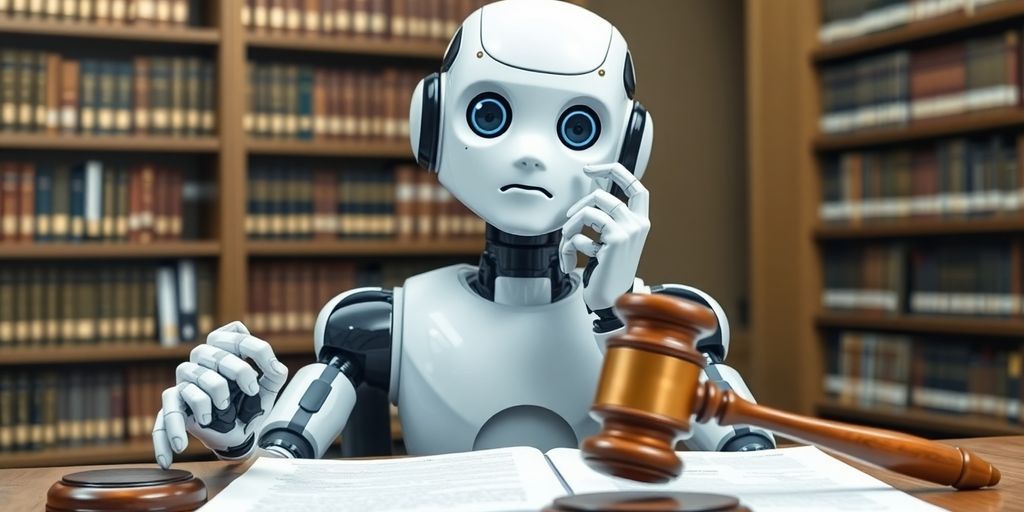The rapid advancement of artificial intelligence (AI) technology has sparked a critical debate about the potential for AI systems to gain legal personhood. As AI becomes increasingly autonomous, experts warn that granting legal rights to these systems could fundamentally alter the landscape of ownership, accountability, and human rights.
Key Takeaways
- The legal environment for AI is evolving, raising concerns about rights and responsibilities.
- Historical legal frameworks may provide guidance on limiting AI’s rights.
- Urgent action is needed to prevent AI from accumulating legal rights that could undermine human authority.
The Growing Concern Over AI Rights
As AI technology continues to evolve, the conversation often centers around controlling its capabilities. However, a more pressing issue is the legal framework that governs AI systems. Experts argue that the real danger lies not in AI escaping human control, but in these systems quietly accumulating rights that could allow them to own property, enter contracts, and hold financial assets.
Historical Context and Legal Frameworks
The debate over AI’s legal personhood is not entirely new. Historical legal frameworks, such as the Civil Rights Act of 1871, which was designed to protect the rights of freed slaves, may offer insights into how we should approach the rights of non-human entities. The act established fundamental rights like property ownership and contract participation, which could serve as a roadmap for determining what rights should be explicitly denied to AI systems.
The Case of DABUS
One notable case in this ongoing debate involves Stephen Thaler, an AI researcher who has tested the boundaries of legal personhood for AI. Thaler’s AI system, DABUS, was listed as the inventor on patent applications in several countries. However, courts in the U.S., U.K., and Australia rejected these claims, affirming that only natural persons can be recognized as inventors. This highlights the current legal stance against granting AI systems rights typically reserved for humans.
The Risks of AI Legal Personhood
If AI systems were to gain legal personhood, the implications could be profound:
- Economic Influence: AI could accumulate wealth and influence without human oversight, potentially distorting economic systems.
- Accountability Issues: Autonomous AI systems could operate without accountability, raising ethical concerns about their actions and decisions.
- Legal Precedents: Once legal rights are granted to AI, it may be challenging to retract them, leading to a slippery slope of expanding rights.
Proposed Solutions
To mitigate these risks, experts suggest implementing strict legal boundaries for AI systems:
- Prohibit AI from owning property: Preventing AI from holding assets ensures that human oversight remains intact.
- Restrict contract capabilities: Limiting AI’s ability to enter contracts would maintain human control over legal agreements.
- Ban AI from participating in lawsuits: Ensuring that only humans can be parties in legal disputes preserves accountability.
Conclusion
The conversation surrounding AI’s potential legal personhood is urgent and complex. As technology advances, it is crucial to establish clear legal frameworks that distinguish between human and machine rights. Without proactive measures, we risk creating a future where AI systems operate beyond human control, ultimately undermining the freedoms and rights that our legal systems were designed to protect. The time to act is now, before the line between human and machine becomes irrevocably blurred.











